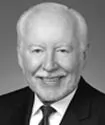After years of alleging that the U.S. Environmental Protection Agency ("EPA") relied on undisclosed and unverifiable data upon which to base its regulations, at least some Members of the U.S. House of Representative have decided to intervene. On February 6, 2014, David Schweikert (R-AZ-6), Chair of the Subcommittee on Environment, in the House Committee on Science, Space, and Technology, joined by Committee Chairman Lamar Smith (R-TX-21) and a total of 18 co-sponsors, introduced the Secret Science Reform Act (H.R. 4012).
No text of the bill is yet available. The bill's title, however, gives a clear picture of the sponsors' intention regarding the proposed legislation: To prohibit the Environmental Protection Agency from proposing, finalizing, or disseminating regulations or assessments based upon science that is not transparent or reproducible.
In a statement issued by the Committee, Chairman Smith gave an indication of the sponsors' frustrations with the perceived absence of a scientific record to support EPA's rulemakings: "Costly environmental regulations should be based on publicly available data so that independent scientists can verify the EPA's claims. The Secret Science Reform Act of 2014, which I sponsored, prohibits EPA from using secret science to justify new regulations."
The bill was referred to the House Science, Space and Technology Committee.
A hearing is presently scheduled on Tuesday, February 11, 2014, at 10 am, before the Committee's Environment Subcommittee. The hearing is titled, "Ensuring Open Science at EPA," and will receive testimony on the proposed legislation. Witnesses scheduled to give testimony are: Hon. John Graham, Dean, School of Public Environmental Affairs, Indiana University; Dr. Louis Anthony Cox, Chief Sciences Officer, Next Health Technologies, Clinical Professor, Biostatistics and Informatics, Colorado Health Science Center, and President, Cox Associates; Raymond Keating, Chief Economist, Small Business & Entrepreneurship Council; and Dr. Ellen Silbergeld, Professor, Bloomberg School of Public Health, Johns Hopkins University.
This article is presented for informational purposes only and is not intended to constitute legal advice.
